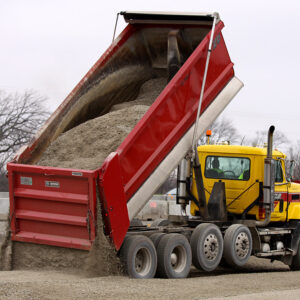Clean Landfill Dump In Corpus Christi
Accepted Materials
One of the most important considerations during the waste disposal process is knowing how all the different materials will be disposed of. The way each item is handled after it leaves the site will have a significant effect on how much the disposal will cost. That’s why it’s important to know what will be placed in each bin before you hire a waste disposal company.
Whether you’re doing a small residential job or a more involved civil project, it’s important to know if the materials you’re handling are considered clean fill. The term refers to a specific type of waste material that can be repurposed, recycled, or reused for future construction projects. The word “clean” is a reference to the environmental effect of the materials you’re using — specifically, that they’re free from contaminants.
Materials That Are Considered Clean Fill
To be considered clean fill, the waste materials must have the following:
- Cement
- Brick
- Topsoil
- Dirt
- Sand
- Gravel
- Rubble
Contractors will typically use them to perform the following tasks:
- Fill in holes.
- Level uneven areas.
- Change the elevation of a specific area.
- Improve the drainage system on a property.
While every area has their own definition of what’s considered clean fill, it’s usually thought of as any uncontaminated solid material left over from construction and demolition activities. It may not be completely free from contaminants, but it shouldn’t be contaminated by spill or environmental release within an acceptable minimum.
Some of the pollutants or contaminants that may affect clean fill materials can include:
- Corrosives, combustibles, noxious or reactive materials, and radioactive substances.
- Naturally-occurring substances (such as arsenic or asbestos).
- Synthetic materials from manufacturing processes.
- Organic waste (such as food and other human refuse).
Contractors need to make sure they’re complying with federal, state, and local regulations on what’s considered clean fill as well as on the types and amounts of allowable pollutants.
Materials That are Not Considered Clean Fill
Any construction or demolition waste that isn’t considered clean fill can mix with water and isn’t hazardous, but it can’t be reused or recycled in future construction projects. Some of these items can include but may not be limited to:
- Plastics
- Glass
- Metals
- Cardboard
- Contaminated soil.
- Fiberglass
- Hazardous household waste (such as appliances and electronics).
Classifying items in this way makes sure that waste materials are put to good use instead of ending up in landfills. An important part of good construction site management is to dispose of different waste materials in the proper manner, and there are always people who are looking for clean fill to finish their own projects.
Waste disposal companies will often collect huge amounts of clean fill from construction and renovation sites, so they can trade it to other construction companies that can use it on various job sites. This process promotes the proper use of waste so it doesn’t end up in landfills. Contractors can promote these initiatives by making sure they have good construction site management with proper disposal procedures.
How You Can Limit Your Liability and Manage Your Risk
Dirty fill can cause a lot of problems for contractors, but there are ways that you can minimize your risk for fill-related environmental claims. Some of them can include the following:
- Get Everything on Paper — Handshake and verbal agreements are hard to defend in court or in an arbitration. But if you have written documents from your supplier stating that everything is clean, you have a leg to stand on if it turns out to be false.
- Write Comprehensive Contracts — If your contracts say exactly what type of fill dirt is to be delivered or provided, it would be a lot easier to sort out and dispute. Your contracts also need to define how each party will accept liability for any mistakes that come up. Incomplete contracts that don’t account for the vagaries of fill dirt can cause months or even years of litigation.
- Work with Qualified Third Parties — Partnering with external experts on pollutants can cost you more up front, but they can save you a fortune in the long run. When you hire environmental experts to look at different soil products, you’re taking a reasonable amount of care that can help you when disputes lead to litigation.
- Consider Getting Environmental Liability Coverage — No matter how vigilant you are, using clean fill can be full of expensive unknowns. There’s no way you can anticipate everything, which is why you should get environmental liability insurance.
If you’re looking for one of the best places for clean fill dumping in Corpus Christi, be sure to reach out to the Streem Company.

